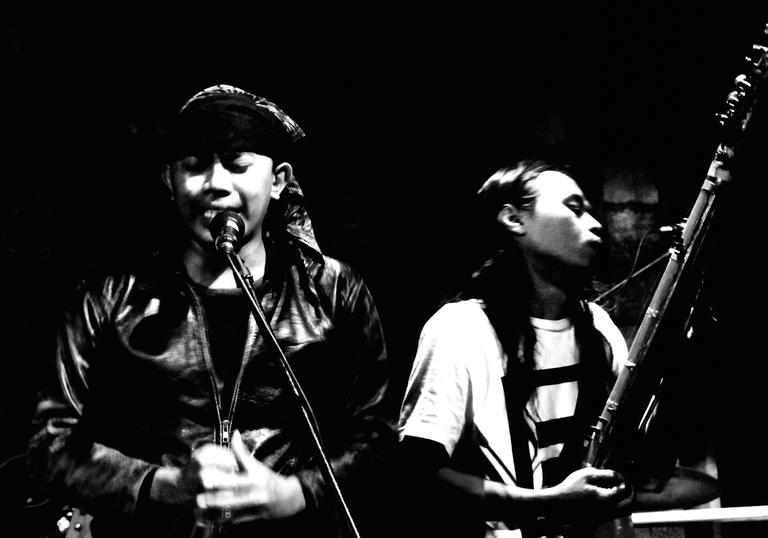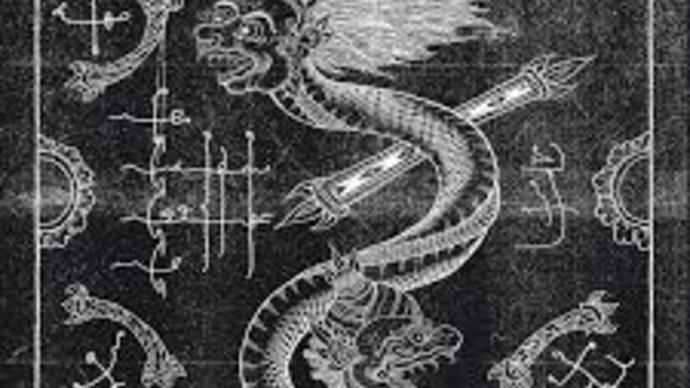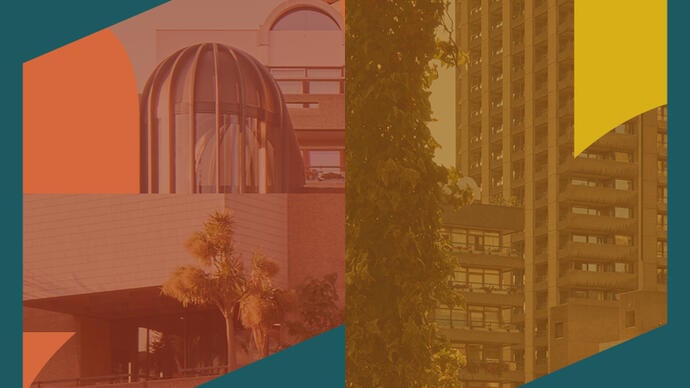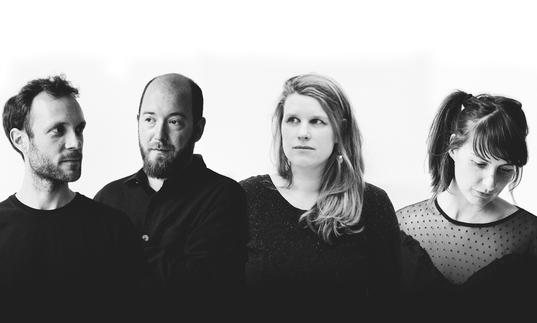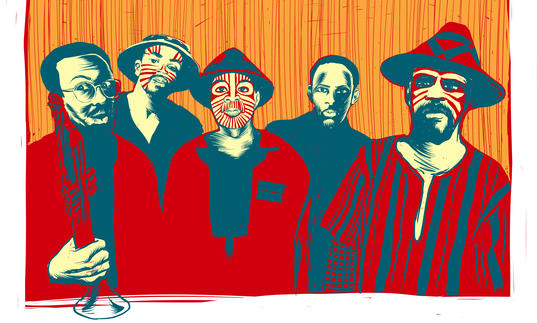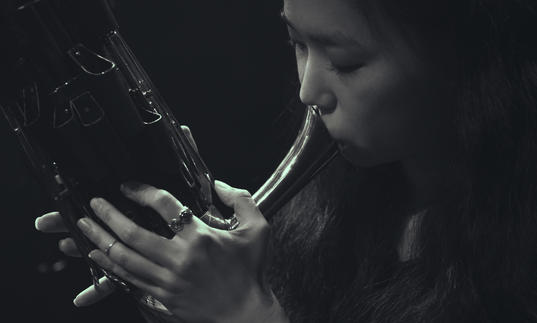Indonesian duo Senyawa, aka vocalist Rully Shabara and instrumentalist Wukir Suryadi, hail from different regions of the largest and most populous island nation in the world (comprising more than 18,307 islands), and bear a name that translates as a kind of chemical compound. There is intense energy and reflective, self-styled soul in their sound; it evokes the music obsessions of their youth (ranging from the trance rhythms of Kuda Lumping Javanese dance rituals, to Western and South American heavy metal bands such as Deep Purple, Iron Maiden, Queen and Sepultura), and their intrepid creativity as modern artists.
As Shabara explained in a 2016 interview with Clive Bell: ‘If you talk about traditional music of Indonesia, it's an entirely different universe. The music is so diverse that it is impossible to say that gamelan is the music of Indonesia because there are so many other things that you may not have ever heard. From Sumatra all the way to Papua, the kinds of music are so different.
‘Sulawesi is an island that has very strong vocal traditions, so they sing in groups, communal singing, random singing and very good melodies, strong voices as well, so if you go from the west of Indonesia which is the Sumatra the music is mainly influenced by Arabic music, Melayu music, so a lot of melody, a lot of harmony, a lot of playing with words, a lot of flute - so a lot of melodies as well. You have a lot of Islamic music influence, so a lot of Rabana you know. As you move to Java, the music becomes abstract. So in Java the music had more space, more sophistication maybe than gamelan for example, it's very abstract.’
Senyawa's 2011 formation was sparked by the pair's spontaneous onstage chemistry; both Shabara and Suryadi had respectively played in a range of rock and folk collectives, but here they met at the Yes No Klub in Jogjakarta: a DIY music hotbed helmed by digital label owner Woto Wibowo (aka Wok The Rock). Since then, Shabara and Suryadi have continued their rep for captivating live performance, as captured in Vincent Moon’s beautifully shot 2012 documentary Calling The New Gods (which includes footage of Senyawa performing in sharply contrasting locations across Java, from rural rice paddy, to a city market and rubbish tip). They’ve proved a memorable presence at international club venues and music festivals, and tonight's east London set at LSO St Luke's should demonstrate the rich atmospheres of their material, with numbers such as ‘Sujud’ (the title track from their last album, meaning Prostration) and ‘Kembali Ke Dunia’ (Return To This World).
Senyawa's heady, distinctive sound might be described as retuned, modified takes on tradition. The far-ranging Shabara’s striking throat singing techniques evoke both traditional roots and thrash metal; he cites the deeply dramatic tones of Diamanda Galas and Italian operatic tenor Enzo Caruso among his vocal heroes. Suryadi's own formative experience included travelling around Indonesia with an experimental theatre collective, from the age of twelve. Back then, he was tasked with creating theatrical sound effects from found objects; now, his use of hand-crafted instruments is integral to Senyawa's sound – in particular, the metre-long Bambu Wukir, created from a ‘spear’ of black bamboo, and serving both as stringed instrument and percussion, and the garu (meaning plough in Javanese), adapted from a disused piece of farming equipment.
There is a convergence of humanity throughout. Speaking to The Wire magazine in June 2018, Suryadi explained: ‘I want to get back to the way it was before the internet, to a more natural space where I can focus on what I want to do. It’s important for me to make something not just because people need it, but for myself, for my heart, for my spirituality.’
Support comes from New York-based improv vocal artist and multi-instrumentalist Robert Aiki Aubrey Lowe, formerly of Chicago art rock outfit 90 Day Men. In his solo guise (aka Lichens, from 2005 debut album The Psychic Nature Of Being), Lowe creates intoxicating soundscapes, merging analogue synth textures, experimental singing and film scores (he has won plaudits for his soundtracks including the 2012 indie horror Last Kind Words). All of the elements converge in this line-up; it feels intimate yet expansive, simultaneously spiritual and of different worlds entirely.
Produced by the Barbican in association with I-D.A Projects
